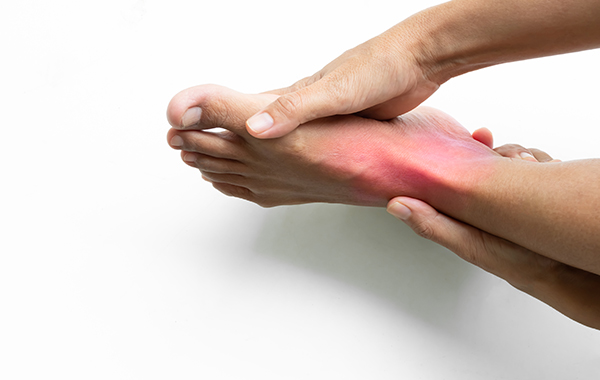Shockwave Therapy
An in-clinic non-invasive procedure performed by a qualified health practitioner
What are 3 different types of shockwave therapy?
Radial shockwave therapy
effective for treating larger areas.
Focused shockwave therapy
provides precise targeting for specific points.
De-focused shockwave therapy
tailored for managing complex diabetic wounds and ulcers.
These different types of shockwave therapy are utilized by various healthcare professionals to address specific medical conditions.
Why should I opt for Shockwave therapy?
No Medication
No Injections
Non Surgical
Highly Effective with Quick Results
Clinically Proven and Successful Worldwide

Are all shockwave therapy machines the same?
In short, the quality of the shockwave therapy device significantly impacts the treatment outcomes. It’s crucial to note the make and model of the device used and conduct thorough online research. Exercise caution if the device can be easily purchased from online platforms.

Successful clinical shockwave therapy relies on
The proficiency of the specialist
Top-tier shockwave device
Regular follow-up appointments and patient feedback
What is Radial Shockwave?
Radial Shockwave Therapy (RSWT) is a widely used treatment for rapid pain relief. It works by generating pressure waves through a mechanical transmitter, which penetrate deep into tissues. This effect provides deeper therapy than manual methods or typical massage tools.
“BROAD PULSATION TARGETS LARGE AFECTED AREA EFFECTIVELY”
Frequently combined with Focused Shockwave for optimal clinical outcomes. Learn more about radial shockwave therapy here.
DID YOU KNOW?
Shockwaves are technically pressure waves rather than true shockwaves. Early pioneers categorized this technology as ‘shockwave’ to avoid public confusion, despite its similar purpose.
What is Focused Shockwave?
Focused Shockwave Therapy (FSWT) is utilized to precisely target and penetrate deep into the body. It delivers a highly penetrative shockwave energy beam to a specific area of the target tissue region, such as the insertion point of a tendon or directly into the hip joint, which radial shockwave devices cannot reach.
Focused Shockwave Therapy (FSWT) is often combined with Radial Shockwave Therapy (RSWT) to achieve optimal clinical outcomes. For more information on Radial Shockwave Therapy, please read further.

“FOCUSED PULSATION PRECISEY TARGETS SMALL AFFECTED AREAS”
Combined with Radial Shockwave for enhanced clinical outcomes. Explore more about Focused Shockwave Therapy.
Discover more about Defocused Shockwave, a specialized treatment aimed at accelerating the healing process of diabetic wounds.
DID YOU KNOW?
Focused shockwave therapy is also utilized across various medical disciplines for diverse purposes, including breaking up kidney stones, treating muscle spasticity, addressing conditions like lateral epicondylitis and chronic pelvic pain syndrome, and enhancing facial and body aesthetics, among others.
History of Shockwave
Originally, shockwave therapy was developed to treat kidney stones using high-energy shockwaves in a setting known as ESWL, or extracorporeal shockwave lithotripsy, typically performed in an operating theatre. Researchers later discovered that lower intensity shockwaves could effectively treat various musculoskeletal conditions and manage pain. Unlike the high-energy shockwaves used for kidney stones, these low intensity shockwaves, known as ESWT (extracorporeal shockwave therapy), are safe and intended to promote healing. They have undergone extensive research and are widely accepted in orthopaedic practices, podiatry centres, and hospitals in Singapore and globally.
Heel Spur
Sesamoiditis
Metatarsalgia
Bunions
Plantar Nerve Neuritis
Recurrent falls
Achilles Tendonitis
Shin Splint
Runners Knee pain
Hip pain
Gout related flare ups
Frozen shoulder
Tennis Elbow
Back pain
Tight Calves
What Occurs After a Shockwave Treatment?
Patients often experience noticeable improvements immediately following a shockwave session. Activities like walking or driving are generally unaffected, though it’s advised to limit physical activity for one to two weeks afterward.
To prevent conditions from worsening, your podiatrist may suggest wearing proper footwear with orthotic arch support. In some cases, sports tape may be applied to provide additional stability and support to the affected area.
How many sessions are required?
Typically, patients require an average of 3 to 5 shockwave sessions, spaced one week apart. However, the exact number of sessions varies based on factors like symptom severity, medical history, and patient adherence.
Possible Risks
The primary concerns include discomfort and heightened sensitivity at the treatment site, typically improving within a few days. Continued pain and limitations can persist if the patient overexerts themselves immediately following shockwave therapy, exacerbating their existing condition.
Can this replace surgery?
Shockwave therapy offers a non-invasive option for patients seeking improvement without surgery. Responses to shockwave therapy can vary among individuals. Surgery may be considered when conservative treatments have been exhausted.
Who should refrain from this therapy?
Complications are rare when shockwave therapy is administered correctly by experienced healthcare providers.
Patients who are pregnant, taking anticoagulants, or have blood clotting disorders should avoid shockwave therapy. If you have received a corticosteroid injection at the pain site within the past six weeks, please inform your podiatrist. Shockwave therapy is also not recommended for patients with cancer.
This list is not exhaustive. If you have any questions or concerns, please consult your physician before proceeding with shockwave therapy.
Is Shockwave Covered By Insurance?
Coverage for shockwave therapy depends on the specifics of your insurance policy. It’s advisable to discuss this with our podiatrist or check directly with your insurance provider for details.
Book your initial podiatry visit
hello@nofrillspodiatry.com
Phone
9007 1085
Open Hours
Mondays - Sundays: 9am-6pm
We're Here Whenever You Need Us
hello@nofrillspodiatry.com
Contact Us
9007 1085
Open Hours
Monday-Sundays: 10am to 7pm
Address
About
About Us
Symptoms We Help With
FAQs
Careers
Contact Us